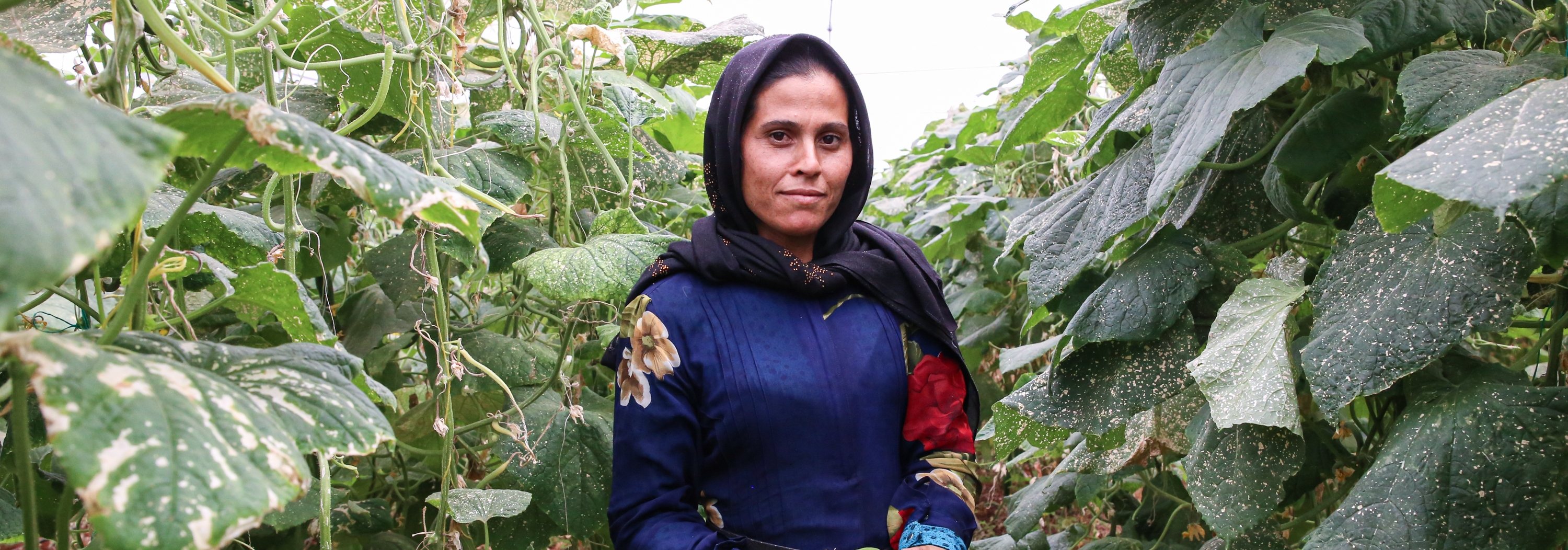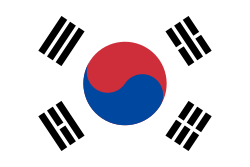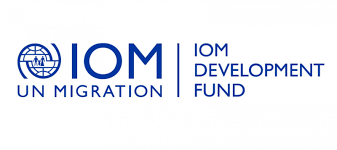IOM Vision
Since 2011, IOM has provided life-saving assistance, early recovery, and resilience programs for Syrians across the region who have been affected by the crisis in Syria, as well as for the communities and countries which host them. In 2022, IOM will continue to implement activities in Turkey, Jordan, Lebanon, Iraq and Egypt as part of the Regional Refugee and Resilience Plan (3RP). IOM's interventions will be multi-sectoral in nature, responding to the needs and priorities of affected populations and leveraging IOM's operational presence, technical expertise and strong relationships with national and local authorities.
Objective
Saving lives and protecting people on the move
|
IOM's interventions target Syrian refugees and host community members, as well as the institutions and organizations that serve them. Prior to implementation, IOM conducts needs assessments, value chain assessments, market assessments, gender risk analyses, community consultations, and coordinates with relevant community, governmental and non-governmental stakeholders. Programs target individuals based on need, with priority given to especially vulnerable groups, including newly-displaced, female- and child-headed households, the elderly and persons living with disabilities. |
|
To support the basic needs of Syrian refugees and host communities in the region, IOM will provide the following assistance. In Turkey:
In Lebanon:
In Jordan:
In Iraq:
In Egypt:
|
|
To support the health needs of Syrian refugees and host communities in the region, IOM will provide, among other support, the following assistance. In Turkey:
In Jordan:
In Egypt:
|
|
To respond to a range of protection needs of Syrian refugee populations and host communities in the region, IOM will provide the following assistance. In Turkey:
In Lebanon:
In Jordan:
In Egypt:
|
|
To address the transportation needs of Syrian refugees and host communities in the region, IOM will provide the following assistance. In Iraq:
In Jordan:
|

Objective
Driving solutions to displacement
|
IOM's interventions target Syrian refugees and host community members, as well as the institutions and organizations that serve them. Prior to implementation, IOM conducts needs assessments, market assessments when relevant, gender risk analyses, community consultations, and coordinates with relevant community, governmental and non-governmental stakeholders. Programs target individuals based on need, with priority given to especially vulnerable groups. |
|
To contribute to improved social cohesion between refugee and host communities in the region and inclusive socioeconomics, thereby maintaining stability in areas hosting refugee communities, IOM will engage refugee and host communities through the following assistance. In Turkey:
In Lebanon:
In Iraq:
In Egypt:
|
|
To contribute to durable and lasting solutions through increased access to education, livelihoods, and civil society support for affected communities in the region, IOM will provide the following assistance in line with its framework on the Progressive Resolution of Displacement Situations (PRDS) and in partnership with local organizations. In Turkey:
In Iraq:
In Jordan:
|
To strengthen the overall provision of MHPSS in Lebanon, IOM will enable the provision of services by local NGOs. IOM will also work to build the capacity of the Ministry of Social Affairs (MoSA)’s Social Development Centres, through partnerships with local NGOs, to provide MHPSS activities and services to local communities, and to foster sustainable solutions.
In Lebanon:
- Provision of direct assistance and capacity development of local service providers focused on social cohesion, peacebuilding, MHPSS, socio-relational activities, and youth.
- Provision of group and individual psychological counselling sessions to refugees and host communities.
- Implementation of socio-relational activities such as art-based and creative activities, sport and play, etc. for children and youth.
- Partnerships with local NGOs for the provision of peacebuilding and social cohesion activities, such as recreational events, workshops, and community initiatives.
IOM seeks to strengthen local health systems with the aim to move from the direct provision of essential services to more comprehensive health services.
In Jordan:
-
To strengthen the clinical capacities of the public health care system, IOM will support the Ministry of Health (MoH) in Jordan through capacity building activities, including through promotion of skills and knowledge transfers and temporary returns of qualified Jordanian expatriates, in the areas of Health Border and Mobility Management, emergency and trauma care, and primary health care in Governorates serving refugee, migrant and host communities.
|
In Turkey: |
- Support a certificate program on MHPSS in the context of social dialogue in collaboration with an accredited Turkish University for Syrian refugees and host community members.
Objective
Contribute to an evidence-based and efficient crisis response system
Regional mobility tracking will support a wide range of actors in providing evidenced, needs-based assistance to populations throughout the region who have been affected by the crisis in Syria. Through extensive data collection, analysis, and reporting, crisis response actors, including humanitarian partners and government stakeholders, will be able to better understand the mobility dimensions of the refugee crisis outside Syria – including the movement and needs of those most affected.
|
In Iraq: IOM will carry out regional mobility tracking to enhance the humanitarian community’s capacity to reach our beneficiaries in need by improving the availability of vital information and awareness on the trends and needs of displaced, migrant, and refugee populations within the region, as well as host communities. To achieve this IOM will leverage its existing information infrastructure across the region through the Displacement Tracking Matrix (DTM) which is IOM’s information management system to track and monitor population displacement and mobility during crises. Composed of a variety of components and tools, the DTM regularly captures and processes multi-layered data and disseminates a wide array of information products that facilitate a better understanding of the evolving needs of a displaced population, whether on-site or en route.
|
Turkey, Egypt, Iraq, Jordan, Lebanon
The map used here is for illustration purposes only. Names and boundaries do not imply official endorsement or acceptance by IOM.
Figures are as of 31 December 2023. For more details of IOM's operational capacity in country, please see the IOM Capacity section.












